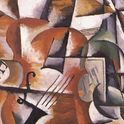The Last Wolf: The Hidden Springs of Englishness by Robert Winder (Little, Brown, £20)
From the patriotic fervour of the Last Night of the Proms to the heritage museums dotted round the country, English nostalgia moors the country to its past while packaging it as a tourist attraction. England has half a million listed buildings, 17,000 protected monuments and 78 railway museums. It is both in awe of its origins and sceptical about the future.
In The Last Wolf, Robert Winder argues that England’s identity evolved over hundreds of years, with influential factors including the changing of the seasons, the agricultural and industrial revolutions—and of course immigration. Isambard Kingdom Brunel, the country’s most celebrated engineer, was the son of a French refugee. Dutch weavers introduced hops to English brewers. Lincoln Cathedral drew Dutch, French, German and Italian craftsmen.
Still a certain brand of English nationalism has always viewed foreigners as economic invaders. The country’s wool trade was once dominated by Tuscan merchants. Centuries later, Cynthia Harnett’s children’s novel set in medieval times The Wool-Pack (1951) would characterise them as a menace: “They ride the country, stealing trade out of honest men’s hands.”
Winder, who in 2004 wrote a compelling book about immigration called Bloody Foreigners, expertly navigates his subject without mentioning Brexit. Yet it has a pertinent lesson for some of the more excitable Brexiteers—we have never been an island nation.
From the patriotic fervour of the Last Night of the Proms to the heritage museums dotted round the country, English nostalgia moors the country to its past while packaging it as a tourist attraction. England has half a million listed buildings, 17,000 protected monuments and 78 railway museums. It is both in awe of its origins and sceptical about the future.
In The Last Wolf, Robert Winder argues that England’s identity evolved over hundreds of years, with influential factors including the changing of the seasons, the agricultural and industrial revolutions—and of course immigration. Isambard Kingdom Brunel, the country’s most celebrated engineer, was the son of a French refugee. Dutch weavers introduced hops to English brewers. Lincoln Cathedral drew Dutch, French, German and Italian craftsmen.
Still a certain brand of English nationalism has always viewed foreigners as economic invaders. The country’s wool trade was once dominated by Tuscan merchants. Centuries later, Cynthia Harnett’s children’s novel set in medieval times The Wool-Pack (1951) would characterise them as a menace: “They ride the country, stealing trade out of honest men’s hands.”
Winder, who in 2004 wrote a compelling book about immigration called Bloody Foreigners, expertly navigates his subject without mentioning Brexit. Yet it has a pertinent lesson for some of the more excitable Brexiteers—we have never been an island nation.












